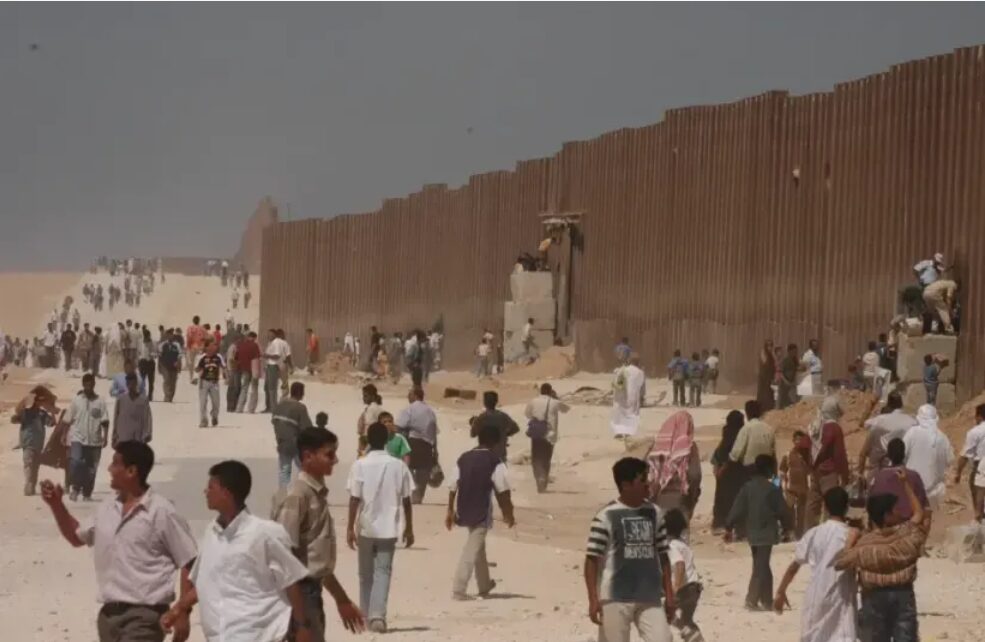A recent cabinet meeting has exposed a dramatic and controversial stance by Prime Minister Benjamin Netanyahu, who has reportedly chosen to focus on controlling the Philadelphi Corridor rather than advancing efforts to secure the release of Hamas-held hostages.
The Philadelphi Corridor, a narrow strip of land along the border between Gaza and Egypt, has long been a critical flashpoint in the Israel-Gaza conflict. As negotiations over a potential ceasefire-for-hostages deal continue to falter, the corridor has emerged as a significant stumbling block, highlighting its strategic importance in the region’s complex military and geopolitical landscape.
The Philadelphi Corridor, also known as the Philadelphia Route, is a 14-kilometer-long (8.7-mile) buffer zone that separates the Gaza Strip from Egypt. Established under the 1979 Israel-Egypt Peace Treaty, the corridor was initially designed to prevent the smuggling of weapons and goods between Egypt and Gaza. It has since become a focal point of military operations, with both Israel and Hamas viewing control of the area as crucial to their respective strategic goals.
For Israel, maintaining control over the Philadelphi Corridor is essential for several reasons. First, the corridor serves as a critical line of defense against the smuggling of weapons and supplies into Gaza, which could be used by Hamas and other militant groups to bolster their capabilities. The area is riddled with tunnels that have been used for years to transport everything from rockets to construction materials, making it a key logistical route for Hamas.
Second, the corridor’s location makes it a strategic chokepoint. By controlling this narrow strip of land, Israel can effectively monitor and disrupt the flow of goods and people between Gaza and Egypt, thereby exerting pressure on Hamas and limiting the group’s ability to sustain prolonged military operations.
For Hamas, the Philadelphi Corridor represents a lifeline. Control over the tunnels and smuggling routes in this area allows the group to circumvent the Israeli blockade and maintain a steady supply of weapons, ammunition, and other essential resources. Losing access to the corridor would significantly weaken Hamas’s military position and its ability to resist Israeli operations in Gaza.
The strategic significance of the Philadelphi Corridor has made it a major sticking point in recent ceasefire negotiations between Israel and Hamas. Israeli Prime Minister Benjamin Netanyahu has faced increasing pressure to maintain a strong military presence in the corridor, even as international mediators push for a deal that would see hostages released in exchange for a temporary ceasefire.
Hamas, on the other hand, has demanded the easing of restrictions along the corridor as part of any ceasefire agreement, seeking to restore its ability to resupply and regroup. The group’s insistence on maintaining access to the Philadelphi Corridor has complicated efforts to reach a deal, with both sides unwilling to compromise on what they view as a critical element of their military strategy.
The ongoing dispute over the Philadelphi Corridor highlights the broader challenges facing any attempt to resolve the Israel-Gaza conflict. As long as the corridor remains a focal point of military strategy for both Israel and Hamas, achieving a lasting ceasefire will be difficult. The corridor’s strategic importance means that any agreement that fails to address the underlying security concerns of both parties is unlikely to hold.
Furthermore, the situation highlights the delicate balance between military objectives and humanitarian considerations. While controlling the Philadelphi Corridor is seen by Israel as necessary for national security, it also has significant implications for the humanitarian situation in Gaza, where residents rely on smuggled goods to survive under the ongoing blockade.
The Philadelphi Corridor’s strategic significance in the Israel-Gaza conflict cannot be overstated. As a critical battleground for control and influence, the corridor remains a central issue in the ongoing negotiations and a key factor in the broader dynamics of the conflict. Understanding its importance helps explain why both Israel and Hamas are so invested in maintaining their respective positions, even as the humanitarian toll of the conflict continues to rise.
